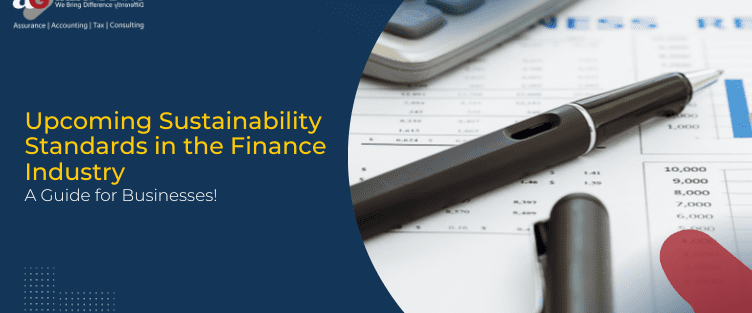Sustainability is becoming increasingly important for businesses of all sizes, and the finance industry is no exception. Investors, customers, and other stakeholders are demanding more information about the sustainability performance of businesses, and businesses are under pressure to reduce their environmental and social impact.
In response to this trend, a number of new sustainability standards are being developed for the finance industry. These standards are designed to help businesses measure, report on, and manage their sustainability performance.
One of the most important upcoming sustainability standards in the finance industry is the International Sustainability Standards Board (ISSB) S1 and S2 standards. These standards were issued in June 2023 and are expected to be adopted by companies in 2024.
What are the ISSB S1 and S2 standards?
The ISSB S1 and S2 standards are the first two standards developed by the ISSB. These standards are designed to provide a global framework for companies to disclose information about their sustainability-related risks and opportunities.
ISSB S1 requires companies to disclose information about their sustainability-related financial impacts. This includes information about the following:
· The nature and extent of the company’s exposure to sustainability-related risks and opportunities
· The company’s policies and processes for managing sustainability-related risks and opportunities
· The financial impacts of sustainability-related risks and opportunities
ISSB S2 builds on ISSB S1 and requires companies to disclose more specific information about their climate-related risks and opportunities. This includes information about the following:
· The company’s greenhouse gas emissions
· The company’s plans to reduce its greenhouse gas emissions
· The company’s exposure to climate-related physical risks and transition risks
How can businesses prepare for the ISSB S1 and S2 standards?
Businesses can prepare for the ISSB S1 and S2 standards by taking the following steps:
- Assess their current sustainability performance: Businesses should conduct an assessment of their current sustainability performance to identify areas where they need to improve. This assessment should cover all aspects of the business, from its environmental impact to its social impact.
- Set sustainability goals: Once businesses have assessed their current sustainability performance, they should set goals for improvement. These goals should be specific, measurable, achievable, relevant, and time-bound.
- Develop a sustainability plan: Businesses should develop a plan to achieve their sustainability goals. This plan should identify the specific actions that the business will take to reduce its environmental and social impact.
- Implement sustainability management systems: Businesses should implement sustainability management systems to track and measure their progress towards their sustainability goals. These systems should also help businesses to identify and mitigate sustainability-related risks.
- Start collecting data: Businesses should start collecting data about their sustainability performance. This data will be needed to comply with the ISSB S1 and S2 standards.
- Update their financial reporting systems: Businesses should update their existing financial reporting systems to incorporate the requirements of the ISSB S1 and S2 standards.
- Develop communication plans: Businesses should develop communication plans to communicate their sustainability performance to investors and other stakeholders. These plans should identify the key messages that the business wants to communicate and the channels that it will use to communicate these messages.
Benefits of preparing for the ISSB S1 and S2 standards
There are a number of benefits to preparing for the ISSB S1 and S2 standards, including:
- Attract investment: Investors are increasingly looking to invest in companies that are committed to sustainability. Businesses that are prepared for the ISSB S1 and S2 standards will be well-positioned to attract investment from sustainable investors.
- Win new customers: Customers are increasingly choosing to do business with companies that are seen as being sustainable. Businesses that are prepared for the ISSB S1 and S2 standards will be better positioned to win new customers and retain existing customers.
- Reduce regulatory risk: Regulators are increasingly focused on sustainability. Businesses that are prepared for the ISSB S1 and S2 standards will be better positioned to comply with new regulations and reduce their regulatory risk.
- Improve operational efficiency: By implementing sustainability measures, businesses can reduce their costs and improve their operational efficiency.
- Increase brand value: Businesses that are committed to sustainability can build a strong brand reputation and attract top talent.
Wrapping Up:
The ISSB S1 and S2 standards are a significant development in the global sustainability reporting landscape. Businesses that are prepared for the ISSB S1 and S2 standards will be well-positioned to succeed in the future. By investing in sustainability now, businesses can reduce their risk, improve their performance, and build a stronger brand.





